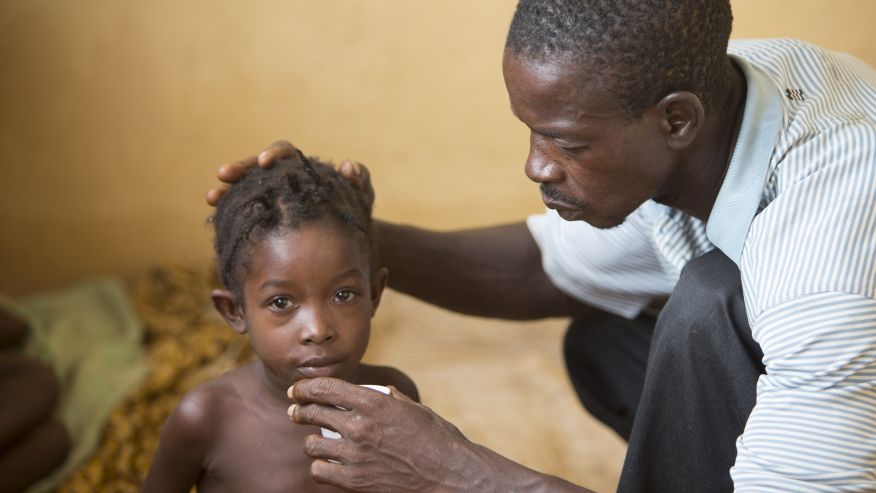
While news reports on the current Ebola crises taper off in the U.S., the fate of thousands of orphans living in those countries most affected by the virus still hangs in the balance. Left without parents - and often abandoned by family members afraid to take in the exposed - these young children are forced to fend for themselves, and often become the victim of crime.
"Imagine how vulnerable a child is when they have no protective care. They could disappear and no one would know it," said Tom DiFilipo, president and CEO of the Joint Council on International Children's Services. "We could try to combat sex trafficking and child labor, but if we could prevent that in the first place, isn't that better?"
DiFilipo is referring to the adoption of orphans long before their physical, psychological and emotional well-being has been battered.

In West Africa, Ebola has claimed the lives of more than 5,400 people, according to the World Health Organization, and has primarily affected those in Liberia, Guinea, and Sierra Leone - home to more than 2.5 million children, MSNBC reported.
Ebola has also brought inter-country adoption to a halt in countries where there remains a need for families willing to take in a child who has lived among the infected, as well as the ongoing need for orphan aid.
"One of the most important things is to get the right message about how this is contracted, really flood the market with information, because it's ignorance and fear that cause the kind of stigma we've seen historically," said Susan Bissell, UNICEF's chief of child protection. "Once you've gone through [Ebola] and you get well, you can't get it again."
In West Africa, more than 4,000 children have lost one or both parents to the potentially fatal virus.
"The first priority is to reunite children with their close relatives or other community members willing to look after them," says Najwa Mekki, a communications officer with UNICEF. "Children are never more vulnerable than in the contexts of large-scale emergencies... Making permanent decisions about children's long-term care should be kept to an absolute minimum during this period."
And while relatives may accept homeless children in during the initial onset of the crisis, long term care may not be a possibility in poorer countries.
"Long after Ebola is even eradicated, we will have the devastation and challenges left behind of these orphans who need to be cared for," says Patricia Anglin, executive director and founder of Acres of Hope, a children's aid organization in Liberia that houses many orphans.
"Those that have extended families, some of those extended families are afraid to reach out to them," Anglin says. "Often times, the traditional thinking is that those children will always be contagious."

Whether contagious or not, Christians are called to care for the fatherless. As James 1:27 says, "Pure religion and undefiled before God and the Father is this: To visit the fatherless and widows in their affliction." Believers have a God-given duty to protect children left without family, and without care.
"Scripture has plenty to say about the orphan and our responsibility to them," Phillip Holmes, preacher, co-founder and Vice President of the Reformed African American Network, wrote earlier this year for Desiring God. "We're instructed that our neglect of the orphan reflects the purity of our faith before the Father. We're warned that mistreatment of the orphan is punished by the wrath of God. We are also exhorted to seek justice for the orphan."
Echoing the commandment of Psalm 82:3 to 'defend the poor and fatherless, and do justice to the afflicted and needy,' Holmes says, "Since Scripture is our guide for living faithfully in this fallen world, we cannot afford to ignore the orphan if we desire to follow Christ."
For more information on the Ebola-induced orphan crisis, please visit the following websites:





















